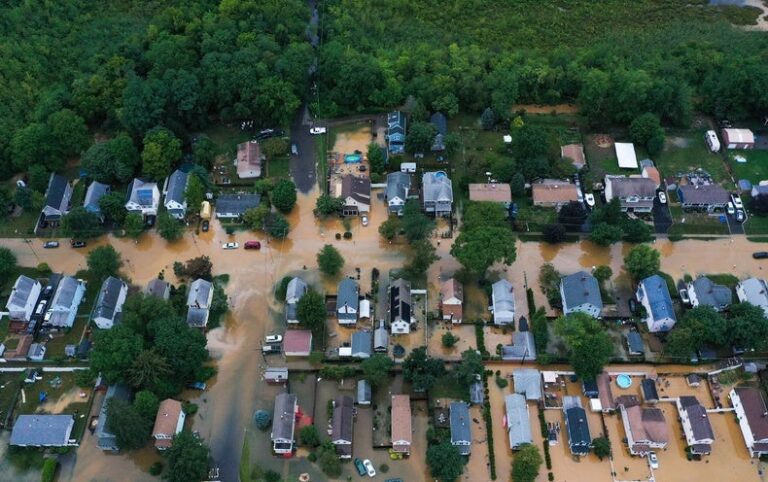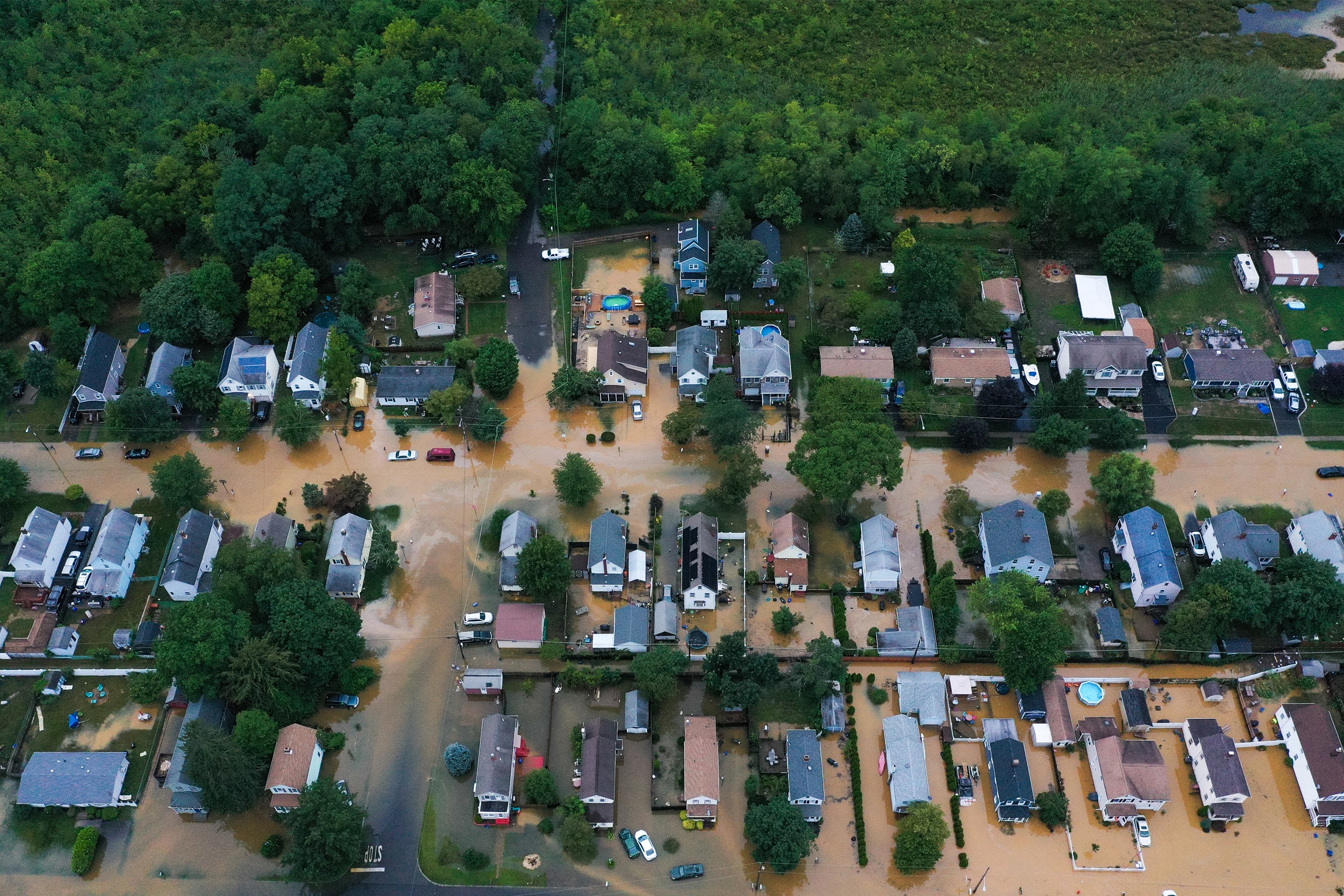
[ad_1]

CLIMATEWIRE | Prospective homebuyers in more states are being told of the flood risk and history of the properties they want to purchase thanks to an uptick in flood disclosure requirements.
A new analysis by the National Resources Defense Council shows that the number of states with strong flood disclosure policies has jumped to seven from four since 2021. North Carolina soon could become the eighth.
The NRDC and others have urged states to require the disclosure during property sales to help buyers decide whether to purchase flood insurance, protect the property or skip the deal. Research has shown disclosure can devalue flood-prone properties and discourage development in risky areas.
“More states are recognizing that flood disclosure is a crucial tool,” said Joel Scata, an NRDC water and climate attorney who wrote the recent analysis. “States see it as a good way to help protect people.”
Flood disclosure is increasingly important as climate change causes more frequent and intense flooding, advocates say. They compare flood disclosure to the federal requirement that property owners tell prospective buyers and tenants about any lead-based paint in a home.
The three states with new disclosure policies are New York, New Jersey and South Carolina. New York Gov. Kathy Hochul (D) signed the law Sept. 22, calling it a “monumental step” toward protecting New Yorkers from the effects of climate change.
New York and New Jersey had received F grades from the NRDC in its previous analysis, released in 2021, because neither state required any disclosure of flood history and risk. New York had a disclosure requirement, but sellers could skip it by giving buyers a $500 credit on a purchase price. The new law removes the option.
Both states now have laws requiring disclosure for prospective buyers and renters.
South Carolina previously received a C from the NRDC, indicating its flood disclosure policy was “adequate.”
The new policy was implemented in June by the South Carolina Real Estate Commission, a state agency that expanded the information required on its mandatory disclosure statement.
The North Carolina Real Estate Commission is considering a similar move after being petitioned by groups including the Southern Environmental Law Center and the North Carolina Justice Center. The commission is reviewing hundreds of public comments on a revised disclosure form.
Four states — Louisiana, Mississippi, Oklahoma and Texas — retained the top ratings they received in the 2021 NRDC report. Texas expanded its disclosure law in 2022 to apply to rental properties.
The top flood disclosure policies require prospective buyers and tenants to receive a form describing whether a home has sustained flood damage, is in a flood zone, is required to be covered by flood insurance or has received any federal money for flood repair.
Despite the increase in flood disclosure, 18 states remain without any disclosure requirement, including Florida, the nation’s third-largest state and most vulnerable to hurricanes, and Alabama and Georgia, according to the NRDC report.
“Florida homebuyers are greatly disadvantaged when it comes to learning of a home’s past flood history or potential for future flooding,” the NRDC report says. The report says a disclosure form created by Florida Realtors is voluntary.
Scata of the NRDC said Florida is showing signs of progress. Four disclosure bills were introduced in the Florida Legislature during its session earlier this year, including one measure that had bipartisan sponsorship. All the bills failed, but Scata said, “You’ll start to see more states push disclosure laws.”
Many of the states with no disclosure requirement are in New England or the Mountain time zone.
The NRDC score card is one of the few analyses of flood disclosure laws in each state.
In 2022, the Federal Emergency Management Agency published a reportthat rates each state on a 10-point scale based on the number of required flood disclosures.
FEMA has been advocating for states to improve flood disclosure and is considering imposing its own requirement, though it is unclear how the agency would do so. Insurance is regulated by state agencies and not the federal government.
Fannie Mae urged FEMA to require flood disclosure, saying that flood awareness “remains low” and the government is “by far the most trusted source” for flood information.
FEMA’s report was similar to the NRDC analysis in 2021 and gave Louisiana a perfect score of 10, followed by Texas with a score of 8.
Reprinted from E&E News with permission from POLITICO, LLC. Copyright 2023. E&E News provides essential news for energy and environment professionals.
[ad_2]